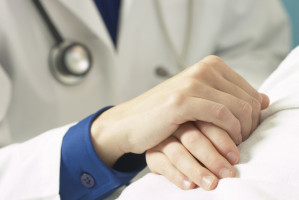
This International Women’s Day on 8th March, WHO builds on the momentum generated by last year's cervical cancer elimination strategy by introducing a new initiative on breast cancer, an action supported by UICC’s own investment in women cancers.
More than 85% of those affected by cervical cancer(link is external) are young, undereducated women who live in the world’s poorest countries.
For breast cancer, while the number of cases is generally higher in high-income countries, women have a much greater risk of dying from this disease in low- and middle-income countries(link is external) (LMICs) due to late diagnosis and limited access to treatment and care.
Inequities exist also between populations within even high-resourced countries.
In the US, for instance, “survival rates can vary by factors such as race, ethnicity, and age.
For white women, the 5-year survival rate is 71%. For Black women, the 5-year survival rate is 58%.” (cancer.net(link is external); statistics adapted from Cancer Facts and Figures 2021, ACS).
Survival rates for breast cancer are similarly 9-10% lower for Black women. And across Europe, Latin America or in Korea, inequalities in access to breast and cervical cancer screening were observed based on education and other socioeconomic factors.
Again, these differences are rooted in inequitable access to efficient care and services.
Indeed, with coordinated action at the national and international levels, a lot can be done – and indeed is being done – to reduce these inequities and improve outcomes for all women.
Last year, the global community committed to reverse current trends in cervical cancer and save up to 72 million lives in LMICs by increasing the rates of HPV vaccination to 90%, cervical screening to 70%, and the treatment of pre-invasive lesions and invasive cancer to 90%, by 2030.
HPV vaccination in particular is key to eliminating cervical cancer as a public health issue, something that will be widely emphasised on International HPV Awareness Day, 4th March.
For its part, UICC is strongly engaged in a series of activities to support the implementation of the Global Strategy and help countries meet the 2030 targets.
The Global Breast Cancer Initiative: another milestone for women’s health and in the fight against cancer
Breast cancer has now surpassed lung cancer as the most commonly diagnosed cancer.
Marking International Women’s Day on 8th March, WHO is calling for action on breast cancer, and introducing their third global cancer initiative, the Global Breast Cancer Initiative (GBCI).
The aim is to initiate collaborative and united action to reduce the growing burden of breast cancer and associated inequities by increasing access to early diagnosis services and developing comprehensive cancer management.
Early detection and therefore the ability to treat the disease in its early stages are crucial to improving survival rates.
The average five-year survival rate for breast cancer in the US, for example, drops dramatically from 90% to only 28% when the cancer is found late and has already spread to another part of the body.
The recent intensification of UICC’s engagement in breast cancer with its Breast Cancer Programme, launched four months ago, is fully aligned with WHO’s call to action.
This multi-partnership initiative gathers leading organisations from the private sector, development agencies and NGOs to support and strengthen the capacity of UICC members, as well as key breast cancer actors to increase their impact.
“UICC is committed to helping to reverse the global trends in breast cancer mortality.
Through its Breast Cancer Programme, UICC is strengthening its support to the breast cancer community, providing opportunities for the development of skills and knowledge, facilitating connections and the sharing of good practices, to ensure that as a community we take action and make progress, particularly in low and middle-income countries where too many women are diagnosed at a late stage, increasing the cost and reducing the likelihood of successful treatment.” says Dr Kirstie Graham, Director of Capacity Building at UICC.
Since its launch in October 2020, UICC’s Breast Cancer Programme has already: built capacity for strong breast cancer control programmes across 22 countries and is currently enabling 120 individuals from 25 organisations to learn how to implement effective breast cancer control programmes through a Project ECHO on breast cancer control; strengthened patient voices in breast cancer through the mentoring of five patient groups in the EMRO region and in the wider community through the UICC Master course on “patient engagement”, now available on-demand as a self-guided course; and, engaged the breast cancer community through a series of Virtual Dialogues on breast cancer.
As part of its Breast Cancer Programme, UICC is currently providing healthcare professionals with an opportunity to learn new skills and gain knowledge in breast cancer control through one-month international fellowships, allowing individuals to visit expert institutions around the world.
These fellowships are supported by Pfizer, Daiichi Sankyo, the US National Cancer Institute Center for Global Health and the Breast Health Global Initiative.
To register for the weekly Fellowships Q&A (Wednesdays at 14:00 CET), to apply directly for a Fellowship or to learn more, please visit the UICC website.
Author: Eric grant, Communication and Media Manager, Union for International Cancer Control (UICC)